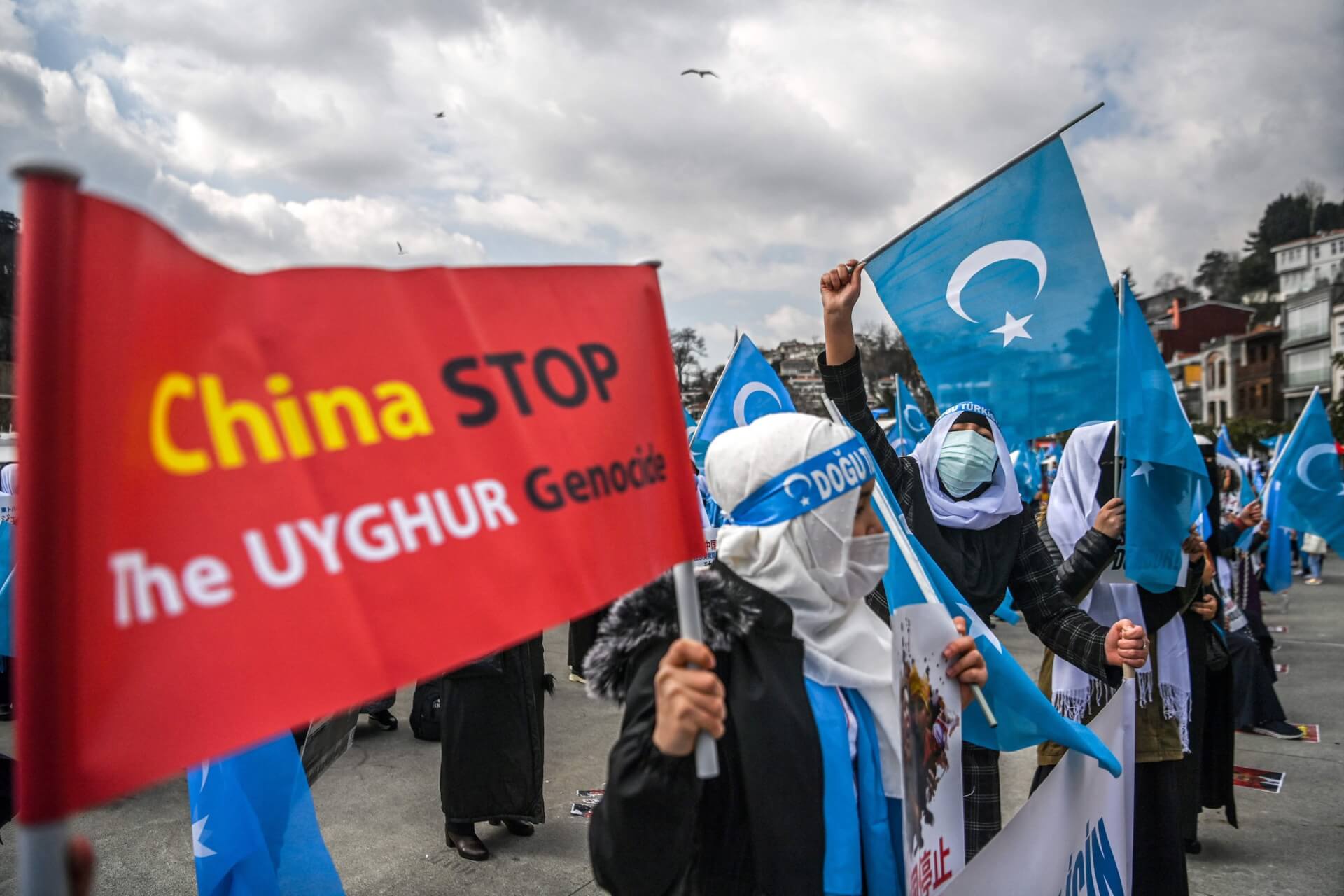China is set to ratify two international treaties aimed at combatting forced labour, likely in an effort to silence international concern around human rights abuses in Xinjiang. Beijing’s top legislature is expected to ratify the Forced Labour Convention and Abolition of Forced Labour Convention today, according to state news agency Xinhua. The conventions were respectively adopted in 1930 and 1957 by the International Labour Organisation (ILO).
The signing of the treaties comes at a time when Beijing’s relationship with the West has deteriorated over reports of mistreatment of labour in the country’s western Xinjiang province, among various other issues. Rights organisations have long accused China of detaining minorities, including over one million Uyghurs and Turks, in vast labour camps in the northwestern province of Xinjiang. Human rights groups claim that they have found compelling evidence of mass detentions, forced labour, torture, forced sterilisation and political indoctrination.
Gov't must act now in sanctioning China over forced labour of Uighur people in cotton fields of Xinjiang. UK fashion businesses must also ensure no exploit of slavery in supply chains. Swift action taken against Belarus - so why not China? People before profits. #Uighurs
— Matt Western MP 💙 (@MattWestern_) December 16, 2020
In response to reports of human rights abuses, United States (US) President Joe Biden last year signed into law a bill that aims to punish the Chinese government for its treatment of ethnic and religious minorities, particularly the Uyghur Muslims in the Xinjiang region. The Uyghur Forced Labour Prevention Act imposes a blanket ban on imports from China’s Xinjiang region and demands that companies provide “clear and convincing evidence” of the absence of forced labour in their supply chain. The law designates goods such as cotton, tomatoes, and polysilicon, a solar-energy component, under “high priority” due to their strong association with forced labour in Xinjiang.
Similarly, France, the Netherlands, Belgium, Canada, and the United Kingdom have previously passed resolutions referring to China’s treatment of Uyghurs as genocide.
However, China has consistently denied claims of genocide and insisted they are “nothing but vicious lies concocted by anti-China forces.” Criticising the retaliation against it, Beijing has stated that “Xinjiang-related issues are not human rights issues at all, but in essence about countering violent terrorism and separatism.”
It would be an interesting development, if EU would ignore concerns about forced labour in China and rush to conclude an investment agreement with China just before the Biden transition opens opportunities for better and stronger trans-atlantic cooperation on China. #CAI https://t.co/oh0ric1UNQ
— Reinhard Bütikofer (@bueti) December 17, 2020
Beijing’s latest move has been met with scepticism by experts, who claim that it is unlikely to improve relations with the West. Joerg Wuttke, the president of the European Union Chamber of Commerce, said last week that the Asian giant’s belated move to ratify the treaties is unlikely to sway its European counterparts without “a real policy change by China in Xinjiang.”
Similarly, German scholar Adrian Zenz said that the gesture would not satisfy critics in Washington, as “the trust in what China does is so low, especially in Xinjiang, that people are going to see this as little more than a cynical gesture.” “People there are going to consider it to be window dressing - a ratification of something the Chinese won’t enforce,” he said.
Although experts remain sceptic, the ILO has expressed optimism regarding the signing. In a statement sent to Bloomberg, the ILO said, “The elimination of forced labour is a fundamental principle and right at work. As such, ratification of these fundamental Conventions by China would be highly significant.”

